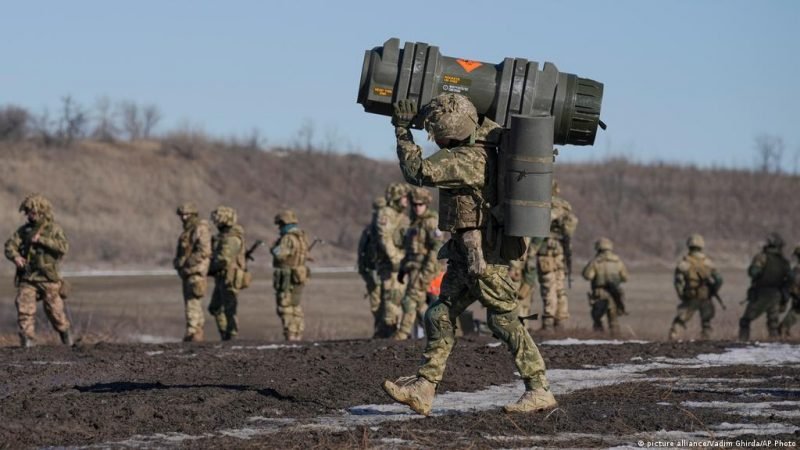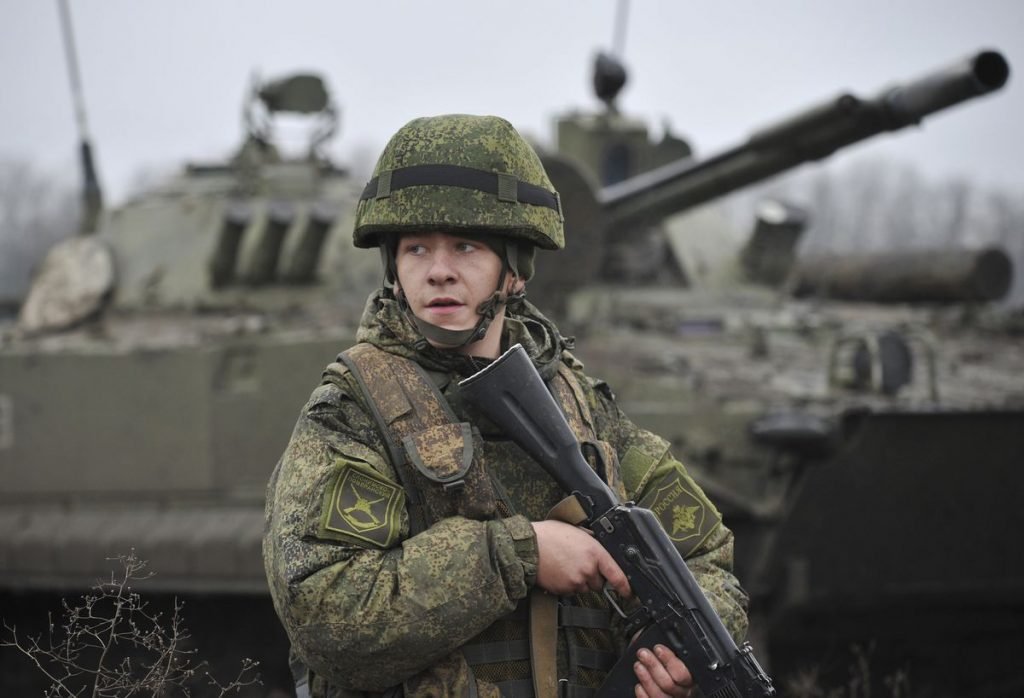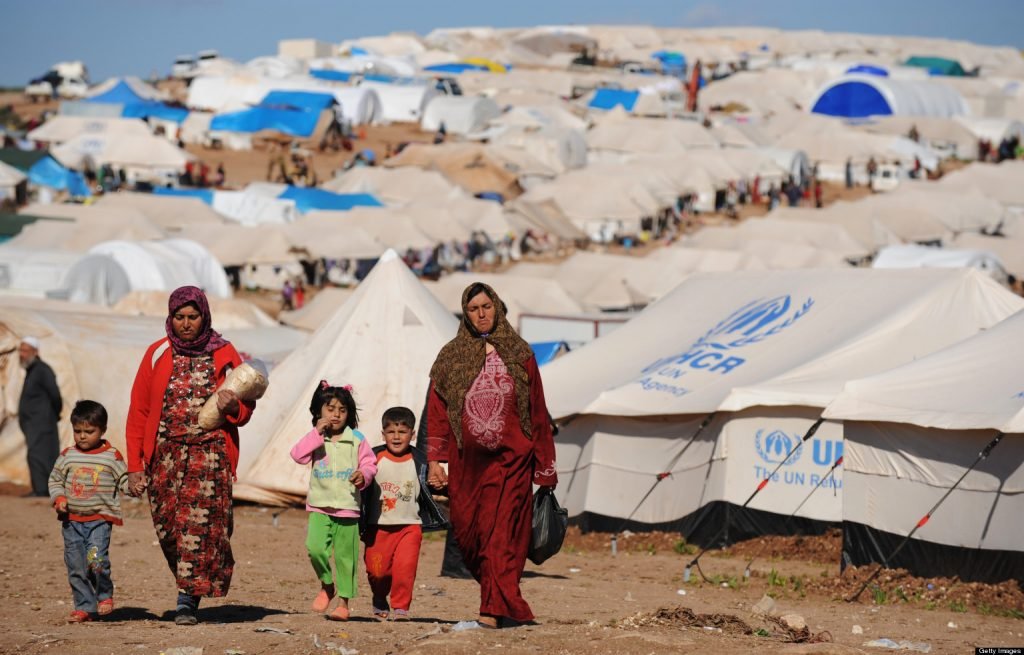Implications of Russia- Ukraine crisis in the Middle East and North Africa

The crisis between Russia and Ukraine has increased for the past few days. The region is at the brink of war where it is alleged that Russia has made the military build-up across the borders to invade Ukraine and US and European countries have come in support of Ukraine. The consequences of escalated tensions between Russia and Ukraine have serious wider implications over the middle east and the north African region. It is also the necessity of the middle east and north African regions to deescalate the heightened conflict between Russia and Ukraine. The main spheres that will be affected will be the energy sector, agriculture, humanitarian crisis, and changes in dynamics of Geopolitics.
Energy
Europe largely depends on Russia for natural gas which accounts for 40 percent. So the initiation of war will disrupt the energy flow to European countries from Russia. It is a matter of serious concern to Europeans that even the middle east provides an alternative energy supply because the middle east single-handedly will not be capable of meeting the energy demands of European countries. This scenario will intensify the existing shortages and lead to high prices for European consumers who are already experiencing a severe cost of living crisis.
There have been diplomatic efforts to find an alternative source mainly focussing on Qatar, which is the one the second largest producer of liquified natural gas. In late January, US president Joe Biden and Qatar emir Sheik Tamim bin Hamad al Thani met at the white house. This was one of the agendas that were discussed. The US asked Qatar to provide Europe gas exports by rerouting from Asia which will increase Qatar’s bargaining power. There is also pressure from the US on Saudi Arabia to increase oil production to drive down prices and in case sanctions on Russia to provide alternatives to European demands.
North Africa can also provide alternative energy sources but due to political instability in the region, it is not that smooth. Mediation is needed in disputed regions. The pipeline between Algiers and Spain has been halted due to the problem between Algiers and Rabat. Libya is another area where there is a major gas pipeline but the Russians have increased their presence and disrupted the energy flows.

Agriculture
The black sea is an important region for grain and agricultural exports; an estimate of 12% of total global grain trade passes through the region. The exports are mainly to the middle east and north African region. Ukraine exports 95% of its grain through the black sea. Egypt is one of the largest importers of wheat which heavily depends on the black sea and other middle east and north African countries also depend on the black sea route. If war breaks out and any blockade in the black sea will affect the agricultural trade will drastically affect the middle east and north Africa which will require finding other alternative sources there will be a hike in prices and it can also lead to a food crisis also.
Humanitarian crisis
The UN assistance is already burdened in providing funding and reconstruction to war-torn areas like Yemen, Syria, and some of the North African countries. Escalation of the Russia and Ukraine conflict will exacerbate the humanitarian crisis.

Geopolitical concerns
The Russia-Ukraine conflict will change the geopolitical dynamics of the middle east and the north African region. As Europe is looking for alternative sources of energy some middle eastern states like Qatar and Saudi Arabia will use the opportunity to strengthen their positions. The US has already discussed with Qatar to provide energy supply to Europe. Qatar will more likely want Europe to make concessions. It requires the European Commission to shelve a four-year investigation into Qatar’s alleged use of long-term contracts to inhibit the flow of gas to the European single market. In Saudi Arabia, Crown Prince Mohammed bin Salman (MBS) wants to change his undesirable international image since Jamal Khashoggi’s murder in 2018. Riyadh could seek to use US and European requests for increased oil supplies to regain the West’s good favour. This could involve a long-sought meeting with US President Joe Biden and a general softening of US criticism of Saudi Arabia.
Turkey is another important player in the region, a NATO member, and has also close ties with both Russia and Ukraine. Like MBS in Saudi Arabia, Turkish President Recep Tayyip Erdogan has been shunned by Europe and the Biden administration. But the conflict in Ukraine would enhance his visibility and increase Turkey’s importance. Russia and the West are now competing to draw Ankara behind their respective positions on Ukraine with Washington keen for Ankara to continue its weapons sales to Kyiv. Turkey is unlikely to fully align with the West against Russia, given its complicated relationship with the country. But these dynamics will doubtlessly lead to a more self-confident Turkish foreign policy – especially in the Mediterranean and Syria – and will reduce Western criticism of Erdogan’s domestic conduct.
At the same time, increased tensions between Europe and Russia over Ukraine worsens Europe’s position in the crises between Syria and Libya, where Russian intervention has already left Europeans in a weak position. Increased tensions with Moscow will further reduce the likelihood that the West and Russia can come together to secure stabilizing political solutions to these crises. If tensions in Ukraine result in further European sanctions on Moscow may use its position in Libya to retaliate. It is also unknown whether the war in Ukraine will affect negotiations to restore the Iran nuclear agreement. Russia has played a constructive role in recent talks, working closely with Western actors to draw Iran back into compliance. But the crisis in Ukraine could push Moscow towards the more disruptive approach of easing pressure on Tehran. For its part, Iran may feel that rising US-Russia tensions and higher oil prices give it space and increase its leverage in negotiations. The United Arab Emirates, for instance, will be wary of alienating Russia by aligning with the West. Israel considers the US as its primary international ally. However, since Moscow deployed its military to Syria, Israeli officials have come to view Russia as their new neighbor to the north. They depend on Russia to conduct airstrikes against Iranian-linked targets in Syria.


















